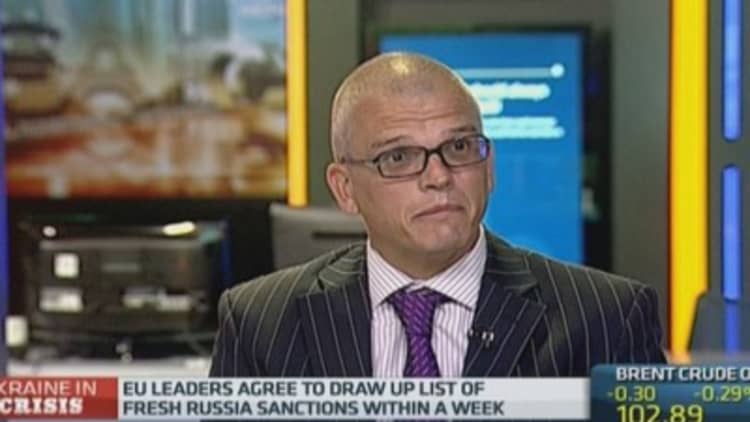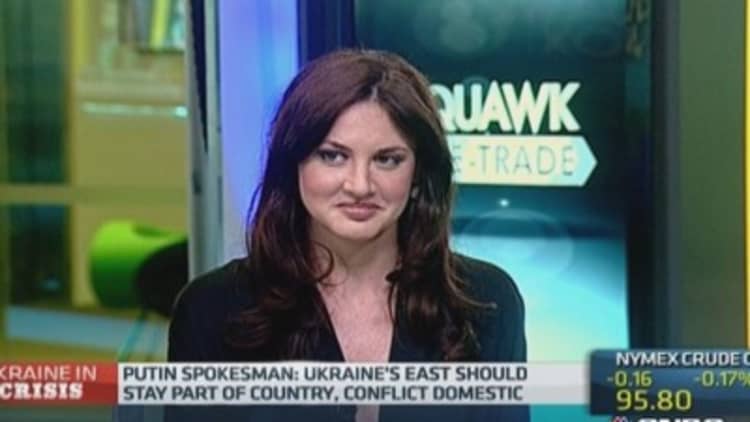
Jury is still out
Throughout this crisis, the Western powers have steered away from military intervention, with U.S. President Barack Obama reiterating last week that there would not be any "military action" from his country.
"The European Union uses soft power. Soft power number one was the association agreement with Ukraine. Soft power number two when the situation escalates is to use sanctions. Have they worked or not? I think the jury is still out," Alexander Stubb, prime minister of Finland, told CNBC.
Yet now some of Ukraine's allies – particularly those formerly under the Soviet Union's sphere of influence - are calling for more action.
"We need to help Ukraine to battle it (Russia) back…and to help militarily, especially with military material, to help Ukraine defend itself. Because today Ukraine is fighting a war on behalf of all Europe," Dalia Grybauskaitė, president of Lithuania, told CNBC.
Whether Europe wants to fight that war is another question.
"The West is struggling to come to terms with a new and more aggressive Russia," Timothy Ash, head of emerging markets research at Standard Bank, wrote in a research note.
"Many would rather ignore the facts on the ground, as they face difficult choices and risk damaging business interests."

Waging trade war?
The situation is more likely to evolve into "an all-out trade war" first, according to Alistair Newton, senior political analyst at Nomura.
This would involve more targeting of companies and individuals by the West, particularly in the banking, defense and energy sectors. This raises the prospect of tit-for-tat measures from Russia aimed at the West's aerospace, autos and shipping sectors. Some analysts are even suggesting a flight ban by Russia, which would complicate the lives of several important Western national airlines, like British Airways.
Will for war?
Even if the will for war with Russia was there, there are problems facing the Western powers.
Defense budgets have dwindled in the Western powerhouses. Members of NATO made up most of the top 20 declining defence budgets between 2012 and 2014, according to research from IHS.
At the same time, Russian defense spending has overtaken the UK, making it the third highest military spender globally. And this pace is set to continue as the Russian military replaces old equipment and bolsters its defenses - in 2016, it is forecast to spend $98 billion on defence, up from $78 billion this year.
So Russia itself is a much more formidable opponent than a decade ago. Its relationship with China, which has so far stayed on the sidelines of the dispute, also complicates the picture, and makes the increasingly China-dependent Western powers more likely to pursue a soft power approach.
The fly in the appeasement ointment may be the Ukrainians themselves.
"Ukrainians seem willing to fight in defense of their country and, if this is added to Russia's determination to keep a tight grip on Ukraine, this all bodes ill still for the future," Ash pointed out.
- By CNBC's Catherine Boyle





